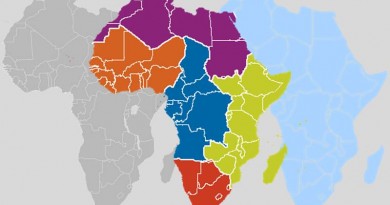Africa’s pharmaceutical industry boom needs more Africans
Africa’s pharmaceutical industry is one of the world’s fastest growing. In just ten years it has exploded—growing from US$4.7 billion in 2003 to US$20.8 billion in 2013. And based on projections for the next five years, the need for prescription medicines, generics, over-the-counter medicines and medical devices on the continent is estimated to grow by between 6% and 11%.
Despite the boom, the continent’s pharmaceutical industry faces several challenges that will stifle its growth. Africa has a dire shortage of specialists to conduct clinical research and develop novel medicines to tackle diseases on the continent. In addition, the regulation of the industry and new medicines is also not standardized.
But comprehensively training people in medicines development, regulatory sciences and clinical research remains a major challenge for universities, industry and regulatory agencies in Africa.
Non-communicable diseases such as cardiovascular disease and diabetes are projected to rise to 60% of illnesses in Africa by 2020.
More interest locally
A range of infectious and non-communicable diseases plague the continent. Non-communicable diseases such as cardiovascular disease and diabetes are growing. In 1990 they accounted for 28% of illnesses and 35% of deaths. This is projected to rise to 60% and 65% by 2020.
As a result of the disease burden, pharmaceutical companies have been expanding their activities in Africa. Local companies have been integral in this process. More than 300 pharmaceutical companies have manufacturing sites in Africa and are active in drug production and clinical trials.
In South Africa alone, 270 new clinical trials start every year and 550 trials are active at any point. The continent’s largest generics company, South African-based Aspen Pharmacare, is among the top ten generic companies globally.
But clinical research in sub-Saharan Africa is mostly performed by international companies with local subsidiaries. Since the 1980s, pharmaceuticals have set up medical departments and contracted research organisations to help their medicine development. Increasingly clinicians are also leading research in the form of investigator-initiated trials.
These clinical trials need to be managed and performed by local appropriately qualified specialists.
Regulation trouble
Aside from the research and development of medicines, the continent faces two other pharmaceutical challenges. The first is regulating the pharmaceutical marketplace. The second is approving new medicines.
In South Africa, pharmaceutical professionals must comply with the Marketing Code Authority. Set up in 2014, it oversees the promotion and marketing of medicines and provides ethical guidelines.
But staff are often not adequately trained and up to date with the ever-changing local and international marketing regulations. And in many other African countries, oversight bodies do not exist.
When it comes to authorising new medicines, the South African Medicines Control Council is the most established regulatory body.
But its review timelines are too long and unpredictable. This is because the council relies mainly on external reviewers from universities and research institutions to review products. There are also delays in approving clinical trials.
In November, the South African parliament passed a bill to phase out the Medicines Control Council and create the South African Health Products Regulatory Agency.
The agency should be set up by 2016 and promises to streamline the process. It will fall outside the mandate of the South African National Department of Health and in-house staff will do much of the work. A mass of trained internal and external reviewers will, however, still be needed to carry out its mandate.
Specific recommendations to train local regulatory experts exist. The health department has set up the Institute for Regulatory Science to train staff, clinical trial specialists and industry employees. But it will still be a long time before the institute is functional.
Creating a syllabus
Internationally, standardised training programs exist. Pharmaceutical medicine has been recognised as a medical speciality in the UK since 2002. This means drug safety regulations and the marketing of pharmaceuticals can be adequately managed by qualified medical experts.
Until recently, the continent has not had an academic program in medicines development which covers the range of drug discovery to marketing.
The UK pharmaceutical medicine diploma exam was offered in South Africa in 2011 but the initiative was later abandoned due to the lack of medically qualified candidates prepared to take the exam.
Globally, Europe’s PharmaTrain Federation has established standardised educational programs. It is now developing an accredited certificate for medical and non-medical specialists worldwide. The federation and its international counterpart have a working group to discuss medicines development education and regulation in low and middle income countries.
The group will provide the standards for tailor-made programs in these countries. Pilot projects will be planned in Zimbabwe, Ghana and Ethiopia.
Until recently, the continent has not had an academic program in medicines development which covers the range of drug discovery to marketing. Since 2010 this diploma program has been offered by Stellenbosch University.
Growing the industry
Universities, other educational institutions, industry, clinical research organisations and regulatory agencies need to work together to grow the local expertise in medicines development and regulation.
More trained specialists will advance the science and the practice of developing novel medicines. Ultimately getting these medicines on the African market will benefit the public and the patients who need it most. But Africans need to make a bigger contribution to this process.
Source: The Conversation -Bernd Rosenkranz, Professor and Head, Division of Clinical Pharmacology, Faculty of Medicine and Health Sciences, Stellenbosch University
The ConversationThis post originally appeared at The Conversation. Follow @TC_Africa on Twitter.
QZ.Com




